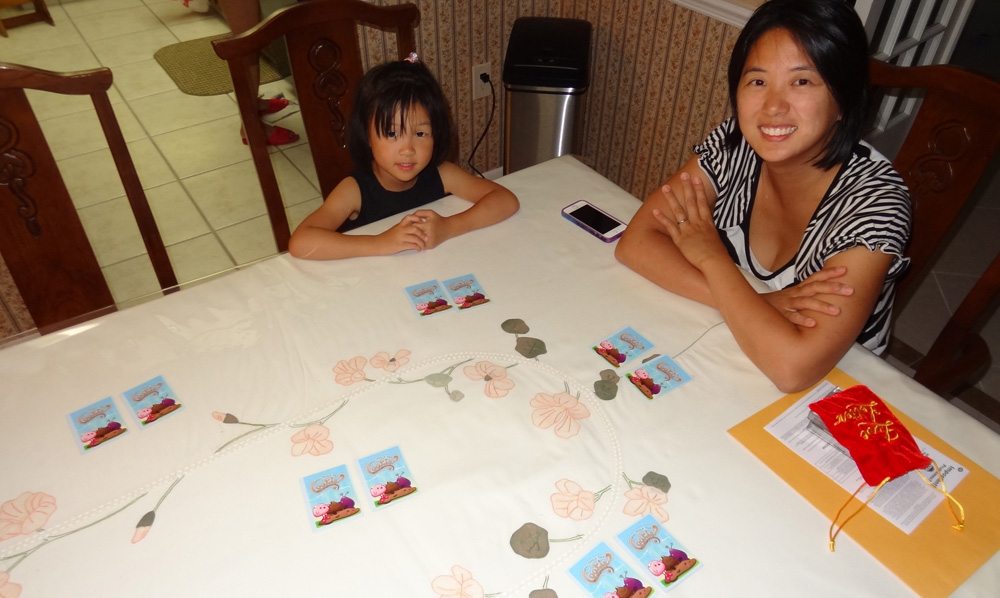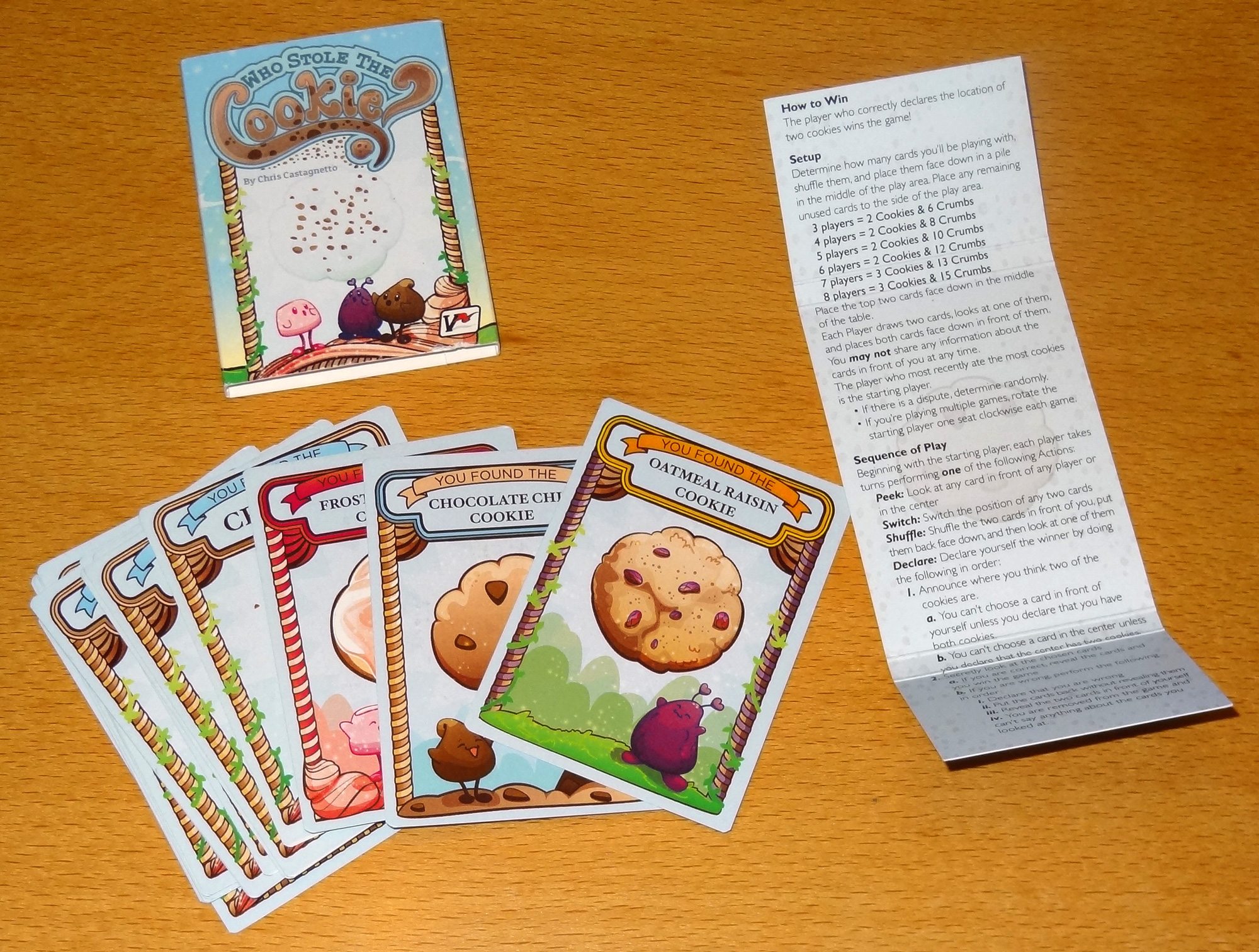
Here’s a brief break from my all-Kickstarter-all-the-time coverage for a cute little game about stolen cookies. Who Stole the Cookie? is a tiny game by Chris Castagnetto and Victory Point Games. The goal, of course, is to figure out where your cookies are.
At a glance: Who Stole the Cookie? is for 3 to 8 players ages 13 and up, and takes 10 minutes to play. It costs $5.99 and is available directly from Victory Point Games. I’ve played it with players as young as four (my niece, pictured above) and there’s nothing inappropriate in it except perhaps the idea of stealing cookies. However, the deduction aspect and keeping a poker face may be beyond the abilities of some younger players.

Components
The game includes 18 cards: 3 cookie cards and 15 crumbs cards. The whole thing comes in a little sleeve, and the instructions wrap around the cards to hold them in the sleeve. It’s nice, minimal packaging—kind of cheap, but it fits in your pocket and there’s no wasted space.
The illustrations on the cards are cute, with little anthropomorphized raisins, chocolate chips, and … some pink sugar thing? And the text isn’t really necessary, but just in case the picture doesn’t make it clear, it says whether you’ve found a cookie or crumbs.
How to Play
You can read the rules here, but it’s pretty quick to explain.
The goal of the game is to find two cookies—but there are some restrictions involved. You can’t have the cookie yourself unless you have two of them, and the cookie can’t be in the center unless two of them are there.
You’ll shuffle together a number of cookies and crumbs based on the number of players, and each player will have two cards face-down in front of them. There will also be two cards face-down in the center of the table. Each player may secretly look at one of their cards before play begins.
During each turn, you take one of these actions:
- Peek: look at any card on the table
- Switch: switch any two cards on the table
- Shuffle: shuffle the two cards in front of you, put them back face-down, and peek at one.
- Declare: declare that you know where two cookies are.
You peek at the two you declared—if you’re right, reveal them and you win the game. If you’re wrong, put them back down without revealing, flip over both of your own cards, and you’re out of the game.
The game continues until somebody finds two cookies or only one player is left.

The Verdict
Who Stole the Cookie? reminds me a little bit of hidden role games like Good Cop Bad Cop, in which a lot of the starting gameplay involves peeking at cards and trying to build up some information before taking other actions. It’s very quick, and has some clever strategy in it, although it’s really boiled down to the deduction. There are no special powers and abilities, no teams. The rules about needing two cookies if they’re in front of you or both cookies in the center can feel a little clunky, but I can see how they’re necessary because of the way things work.
I’ve tried it with both kids and adults, and I’d say it’s more enjoyable (and challenging) with adults. But I also like the idea of playing with my kids, so they can practice two things: one is keeping a poker face when they’re playing games. The first time my seven-year-old played, she couldn’t keep from grinning when she found a cookie and pouting when she found crumbs. (I realize that practicing this could backfire if it means they’re better at keeping a poker face in non-game situations.) The other is to practice their deduction skills. If you see somebody shuffle their own cards after somebody peeked at one, what does that mean? If somebody looks at a card, and then switches it somewhere on their next turn, what does that mean?
It’s interesting to use switch and shuffle both defensively and as a bluff. If you shuffle your cards, either you’re doing so because another player just found a cookie in your possession, or to pretend that’s the case. Switching is often done so that you can position both cookies in front of you or in the center, or to get a lone cookie out of those locations into somebody else’s hand.
Overall, Who Stole the Cookie? is a simple game of deduction and bluffing, and I think it’s best with a bigger group. For my group, it probably won’t replace deeper games like Good Cop Bad Cop or Mascarade or Coup, but I’m happy to throw it into the mix now and then. And the price and size is perfect for taking it along for on-the-go gaming.
Disclosure: GeekDad received a review copy of this game.



